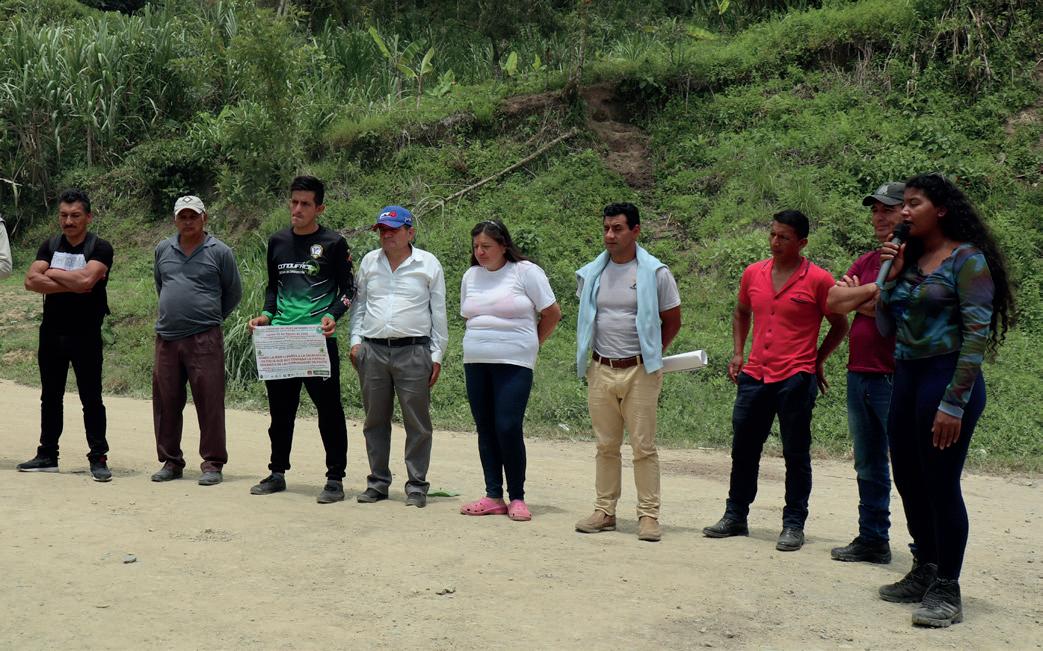
3 minute read
CRIMINALIZATION: A POWER RELATIONSHIP DIFFICULT TO OVERTURN
It is already clear from these definitions that the word embodies a logic of power. There is someone who has more power than someone else, and to show it, he exercises it through the laws of a state. Criminalizing people means making them illegal because the way they act creates problems at the highest levels of power. In Italy, for example, we often talk about the criminalization of NGOs or of people trying to save the lives of migrants crossing the Mediterranean Sea. More generally, all over the world, we talk about criminalizing those who tell the truth, an inconvenient truth that would be better not to tell: this is the case with some journalists, and the most famous person who comes to mind is Julian Assange, from the Wikileaks case There is a power relationship between those who tell the truth and those who want to discredit them because uncomfortable truths do not bring anything good to those in power.
This also happens in Pacto: on the one hand, there are peasants, defenders of their land, defenders of their rights, who denounce the illegality of mining activities by companies; on the other hand, there are the multinationals, who are corrupting the central government to obtain results, who have no intention of wasting time arguing with those who resist their business. Instead of acting within the law and defending themselves against the peasants’ accusations, they accuse them in turn. This is how the peasants end up being accused as well.
Advertisement
“Of what?”, we all ask ourselves. The answers are many: abusive occupation of private soil, complaint for damage to someone else’s property, misappropriation, among others. There are no real claims, no eyewitnesses and no evidence. There are only summary accusations, but according to the mining companies, they could be plausible before a court. Complaints debilitate people in many ways: they discourage, intimidate, and they aim to break down the pillars of the resistance. Yuly Tenorio, the lawyer of the denounced peasants, has also been denounced.
The engineer Milton, president of the Frente Antiminero and attentive expert on the territory, who has examined the various crimes committed by the mining companies, was denounced and criminalized, as well as the biologist Inty Arcos, who proposes educational projects in schools to introduce children to the wonders of the so-called bosques primarios, untouched forests that hold the record for biodiversity in the Chocó Andino. And then there are the peasants, like Eddyn Cortes, denounced several times and even threatened with death for his perseverance, for his determination to continue defending his land at all costs, without moving back a step. Together with him a dozens other people will face trials. In Ecuador’s complicated judicial system, it is not always possible to be sure that the courts will bring the truth to light. In a world where the rich win and the poor lose, corruption is the first weapon to take the floor against the peasants of Pacto. The police are corrupt, lawyers sometimes do not know how to navigate the complex political-judicial intrigues, the courts do not treat all suspects equally and people are afraid. They are afraid of going to jail for nothing. They are afraid of going to jail and staying there and accidentally dying there.
As quoted by Aeschylus: “In war, truth is the first casualty”. Ecuador is considered a country at peace. However, the internal war between the spokesmen of the cruellest capitalism and the defenders of human rights and the rights of nature still leaves its victims. For Operation Daywork, awarding COPROPAP with the Human Rights Prize means not only giving them a voice to bring their truth to light but also means recognising their version of history as the one and only one to believe in. We hope to accompany them, even if from further away, on this still very long and winding path, and we hope to see them succeed at the end of the race.
Oggi è stato un giorno faticoso: sono le undici di sera e sto scrivendo due righe prima di andare a letto, mentre le palpebre si fanno sempre più pesanti. Dall’inizio del viaggio è la prima volta che andiamo a letto così tardi e il motivo è che oggi abbiamo vissuto varie esperienze super eccitanti!
È solo il sesto giorno qui in Ecuador ma siamo già molto dentro al mondo di COPROPAP e stiamo conoscendo le storie dei loro membri. Per mostrare la nostra voglia di aiutare e sporcarci le mani insieme a loro (e un po’ per tirare fuori i muscoli) oggi abbiamo caricato un container pieno di panela e la cosa più entusiasmante è che sulle etichette si poteva leggere la destinazione: Bolzano! Insomma, dalle 8 del mattino fino alle 13 abbiamo sollevato pacchi di panela… e per fortuna in Ecuador i pasti sono molto abbondanti e così, al momento del pranzo, abbiamo ricaricato le batterie con riso, verdure, carne, succhi di frutta dolcissimi… L’intera giornata si è svolta in un luogo chiave: il Plantón. Il Plantón è un luogo lungo la strada di Pacto dove dal 19 dicembre 2020 gli attivisti del Frente Antiminero (di cui fanno parte anche i contadini di COPROPAP) portano avanti una resistenza non violenta per cercare di fermare una volta per tutte le attività delle imprese minerarie. Tutti insieme sono riusciti a fermare un camion carico di materiale minerario estratto illegalmente e hanno dimostrato di volersi giocare il tutto per tutto. Da quel giorno il Plantón è un simbolo di resistenza e da quella data assicurano una presenza attiva ventiquattr’ore su ventiquattro per tutti i giorni della settimana.










